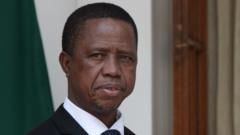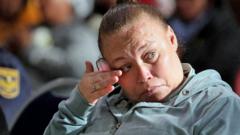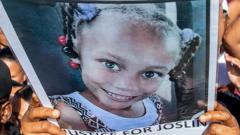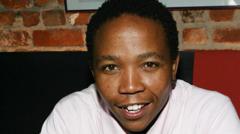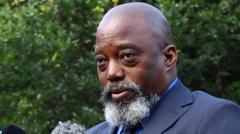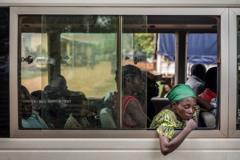The emergence of Pope Leo XIV as the first American-born pope, tracing his roots to a historic Afro-Caribbean community, has sparked joy and hope among Catholics, particularly those of African descent, as they feel a deeper connection to their new leader.
Pope Leo XIV: A Bridge Between Cultures and Faith

Pope Leo XIV: A Bridge Between Cultures and Faith
The new pope's Creole heritage resonates with global Catholic communities.
In a historic moment for the Catholic Church, Pope Leo XIV stepped onto the balcony of St. Peter’s Basilica on May 9, 2025, making an immediate impact with his diverse heritage. The Rev. Lawrence Ndlovu, watching from Johannesburg, South Africa, was struck by the pope's unique appearance, which deviates from traditional expectations. “You’re not the classical white sort of person,” he pondered, expressing curiosity about the pope's identity.
News that Pope Leo's lineage includes Creole ancestry from New Orleans—a cultural hub rich with African, Caribbean, and European influences—has reverberated positively among Catholics globally, especially in Africa. Many, including Ndlovu, feel a newfound sense of representation and belonging, believing that having a pope with shared racial and cultural roots might foster greater understanding of their struggles and aspirations.
However, the specifics of Pope Leo’s ancestry are still being uncovered, with some records suggesting discrepancies regarding his maternal grandfather's origins. Identified variously as hailing from the Dominican Republic, Haiti, or Louisiana, there is a growing interest in exploring the connections between these roots, raising hopes for a more inclusive Catholicism.
Edwin Espinal Hernández, a Dominican genealogist, added to the intrigue by noting the potential link between the pope's forebears and the Haitian capital, Port-au-Prince. This evolving narrative emphasizes the transformative potential of the papacy under Leo XIV and reflects a reconciliatory spirit that resonates beyond borders and backgrounds.
News that Pope Leo's lineage includes Creole ancestry from New Orleans—a cultural hub rich with African, Caribbean, and European influences—has reverberated positively among Catholics globally, especially in Africa. Many, including Ndlovu, feel a newfound sense of representation and belonging, believing that having a pope with shared racial and cultural roots might foster greater understanding of their struggles and aspirations.
However, the specifics of Pope Leo’s ancestry are still being uncovered, with some records suggesting discrepancies regarding his maternal grandfather's origins. Identified variously as hailing from the Dominican Republic, Haiti, or Louisiana, there is a growing interest in exploring the connections between these roots, raising hopes for a more inclusive Catholicism.
Edwin Espinal Hernández, a Dominican genealogist, added to the intrigue by noting the potential link between the pope's forebears and the Haitian capital, Port-au-Prince. This evolving narrative emphasizes the transformative potential of the papacy under Leo XIV and reflects a reconciliatory spirit that resonates beyond borders and backgrounds.






